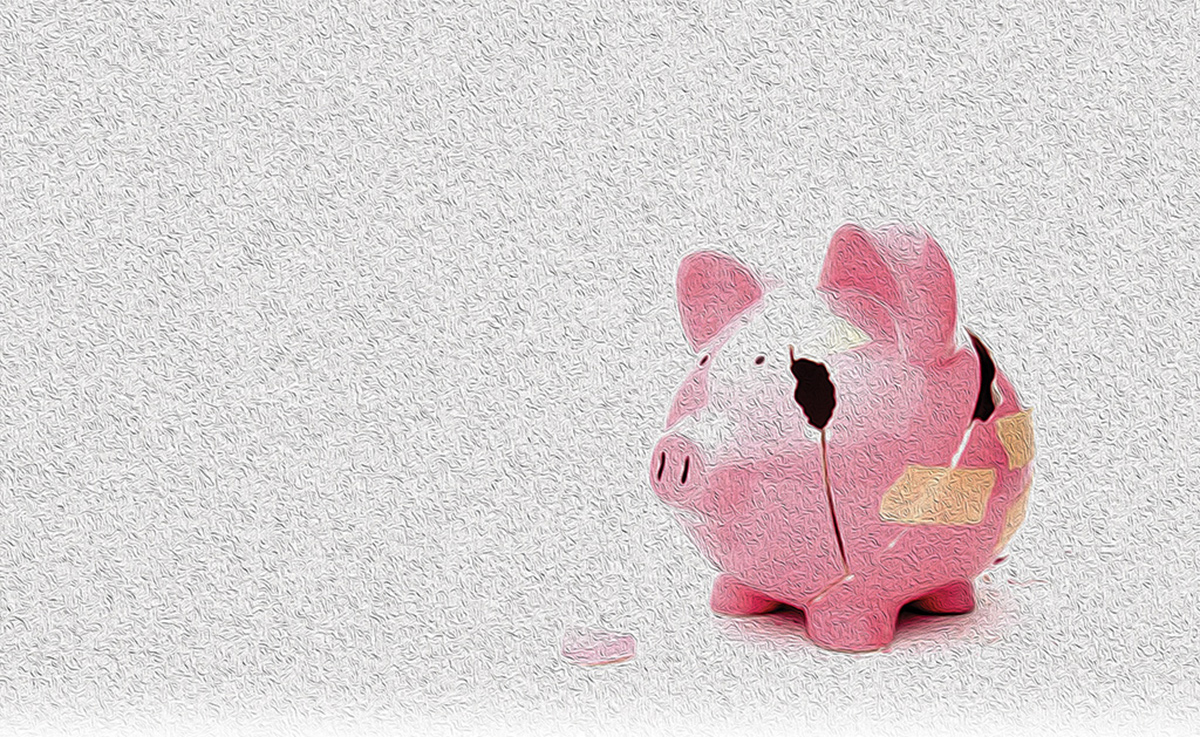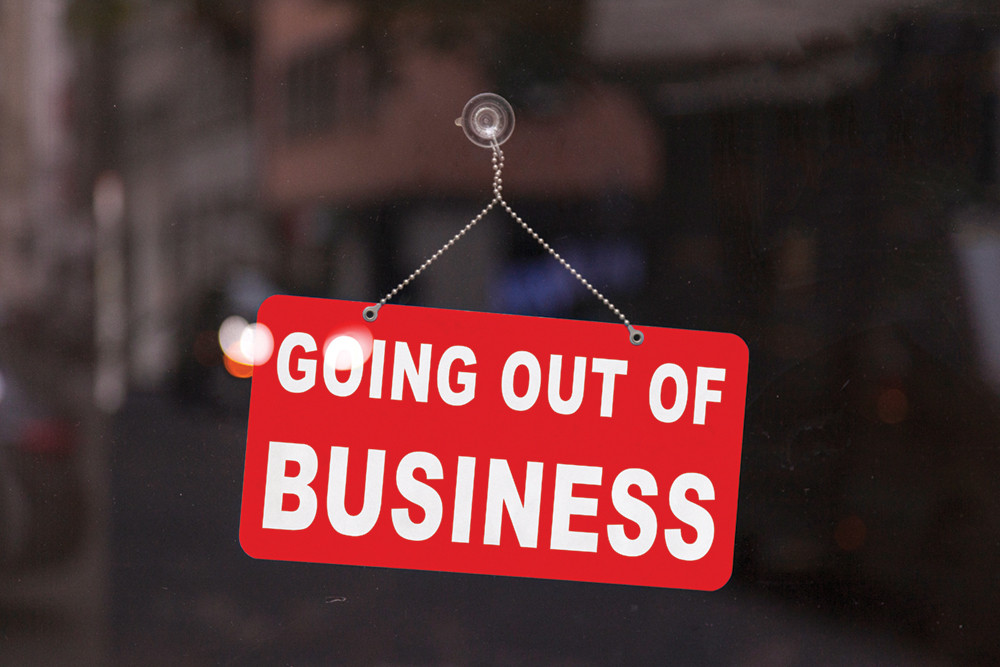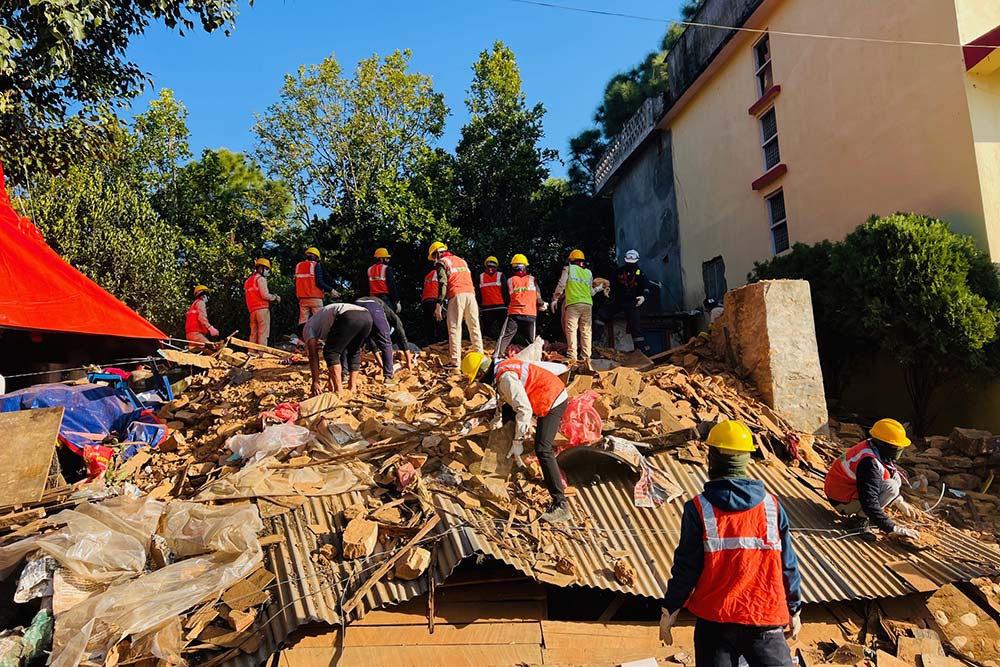
The government is struggling with stimulus and restraint with an inclination for the latter? At this point small and medium businesses are seeking answers and measures from a government that is caught in its own quagmire of inefficiency. SME’s are today confronted with a situation that challenges their very existence should the lockdown and restrictions prevail indefinitely. Businesses are left with the hard choice of risk vs. responsibility to mitigate the effects of the pandemic in the coming days.
● How is the pandemic affecting the business sector you operate in?
● What does recovery look like for your business?
● What changes do you anticipate for your business when it resumes?
● What are your minimum expectations from the government?
Business 360 sought answers from a diverse set of entrepreneurs in the country about the new reality of business today.






ATULYA PANDEY Co CEO, Outside

Once the world is back on its feet, we anticipate that investment will increase and the technology sector may be one of the first sectors to recover. Fortunately for our sector, all we need is a computer and good internet and we could be working from any part of the world.
How is the pandemic affecting the business sector you operate in?
Like most businesses, technology companies and mainly digital agencies have also been badly hit by the pandemic. Most businesses technology companies have experienced a sudden and big blow to their revenue which is forcing them to cut costs. With uncertainty on how long the pandemic is going to last, businesses are now moving on to a ‘wait and watch’ period and pausing most investments, including technology investments. Other product oriented tech companies have been forced to rethink their models and try to catch up with the fast changing market.What does recovery look like for your business?
The silver lining is that the pandemic has shown businesses how important it is to maintain a digital presence and move your business online. Adoption of technology tools have also been expedited. Businesses that have opted for a digital presence and tools such as digital /online payments have benefitted more than others. Once the world is back on its feet, we anticipate that investment will increase and the technology sector may be one of the first sectors to recover. Fortunately for our sector, all we need is a computer and good internet and we could be working from any part of the world.What changes do you anticipate for your business when it resumes?
During this time, we have focused our energy on identifying new trends and understanding what kind of businesses are looking for technology services so we can serve them. We’re also identifying new markets for our products. Our focus has been to figure out how we can protect ourselves from this extended threat.What are your minimum expectations from the government?
The government can play its part by making it easier for us to take low interest loans, tax credits that we can reinvest in growth and creating more opportunities, changing modalities of Social Security Fund so that employees are not restricted to use the funds only post retirement. If we can allow use of the fund at this time of crisis, it may actually help in short term survival, protection as well as an increase in local spending. Not all sectors are as fortunate as ours in terms of recovery and stimulus packages to help seem like an absolute need. The government should also come up with more ways to incentivise local spending. Our sector would definitely be open to collaborating with the government to figure out short and long term strategies for economic growth. Technology may be one of the biggest drivers of growth if we do it right. With the world going ‘remote’ and being more comfortable with the idea of ‘remote’ working, it may not matter for companies to hire in New York or Butwal. Strategies should focus on how we can develop competitive skills to be able to take on these global tasks.DEEPENDRA TANDON ED, Advantage Group

The times are currently difficult for the advertising and media industry. The consumption patterns have been altered. Online buying has become a norm. Even consumption of media has been altered with newsprint taking the biggest hit. One-size-fits-all doesn’t work anymore and media consumption is getting more and more fragmented and content driven. Many of these trends may never get back to normal as we knew it pre-Covid. Though I believe the rebound could be much stronger and faster than many pundits estimate, for advertising the recovery could be slower as they wait for businesses to get their house in order.
How is the pandemic affecting the business sector you operate in?
The world has been hit with an unprecedented crisis in the form of the ongoing Covid-19 pandemic. The health hazards have been unlike we have seen before and large parts of the world have been forced to stay indoors, taking a huge toll on the economy of nations. Nepal hasn’t been much different. The two-month lockdown has in effect brought the economy to a standstill. The magnitude of this is yet to unfold. Most businesses are shutdown barring a few essential services. Some industries are more hit than others but it can be safe to say that most are struggling to find ways to cope with this pandemic and stay afloat. These challenges are far more magnified for SME’s as their reserves are generally insufficient to meet such situations and become sitting ducks for banks and larger businesses. It comes as no surprise that advertising spending has almost come to a standstill in the last couple of months despite media consumption increasing. The health of the advertising industry is dependent on the health of the economy as a whole. If other industries are doing well then advertising grows and in times of crisis it often becomes the first casualty. When businesses get into cost-cutting, advertising budgets are often the first to be slashed. Companies are unsure of how to tackle the ongoing situation and staying silent becomes the safest bet for many. However, the benefits for brands who can connect with their customers during such times are immense.What does recovery look like for your business?
The times are currently difficult for the advertising and media industry. The consumption patterns have been altered. Online buying has become a norm. Even consumption of media has been altered with newsprint taking the biggest hit. One-size-fits-all doesn’t work anymore and media consumption is getting more and more fragmented and content driven. Many of these trends may never get back to normal as we knew it pre-Covid. Though I believe the rebound could be much stronger and faster than many pundits estimate, for advertising the recovery could be slower as they wait for businesses to get their house in order.What are your minimum expectations from the government?
It is natural for businesses and individuals to turn towards the government in times like these. Many countries have already announced huge relief packages; some amounting to 10-15% of their GDP. The government of Nepal has indicated it lacks funds for bringing forward similar relief packages. However, not all has to do with relief alone. Reigniting the economy is far more important for businesses than short-term relief. For e.g., if the government wants companies to continue to pay salaries to its employees, they can give tax cuts on such salaries paid during this time. Similarly, tax rebates to bring more money in the hands of consumers, focus on internal tourism, interest rebates and extensions are some policy decisions the government should take to help kick start the economy once we come out of lockdown. Fast-tracking clean feed implementation, lifting of industry-based advertising restrictions, online advertising policy acceleration are some of the decisions that could help the advertising and media industry to recover faster than normal. All these don’t necessarily require doling out huge amounts of money by the government but a foresight on how the situation can be made more conducive for businesses, especially SME’s, as they are the lifeline of any economy.DR NEIL PANDE Healthy Smiles

If the government can set guidelines and help us MSMEs sustain, it will be win-win for all. Rent, salary, loans, taxes and recapitalisation are the areas where government’s instructions and policies will help us a great deal. We will be able to manage continuing our services, retain our staff and help the government with continuing the economy.
How is the pandemic affecting the business sector you operate in?
As a dentist, we are the number one profession at risk as per World Economic Forum. Close proximity of care of the region where the virus resides makes us at the highest risk. Besides, the use of drills and cleaning machines that create aerosol in our clinical set up will make it mandatory to improvise many procedures. We will need to manage air flow in the entire premise, forcing us to invest on new equipments. In our care, we cannot maintain the minimum social distance of six feet, hence the use of additional PPE will add to the further economic burden. All these will definitely increase our costs, which will eventually increase our service fees.What does recovery look like for your business?
People have not stopped eating junk and sweet and their clenching or grinding has increased due to stress. They are still not flushing mouth with water after every use and also not brushing and flossing at night. Therefore, we may have some emergency work as we open, but then it will slow down as people may postpone all the elective treatments that can wait. This will challenge us a great deal to sustain our businesses and maintain employment.What changes do you anticipate for your business when it resumes?
Lot of new processes need to be added on ensuring 100% compliance. We may have to introduce COVID-19 Tests prior to procedures and finish all the treatments at one go, as far as possible. Digital Technology, 3D printing and Single Visit Dentistry will be more established. Again, this may add costs to the patients. It may be a good opportunity for the insurance companies and banks to introduce various schemes, so that patients can pay as EMIs. At the same time, low interest loans in the healthcare sector and tax waiver will help in keeping the healthcare industry alive and modern.What are your minimum expectations from the government?
If the government can set guidelines and help us MSMEs sustain, it will be win-win for all. Rent, salary, loans, taxes and recapitalisation are the areas where government’s instructions and policies will help us a great deal. We will be able to manage continuing our services, retain our staff and help the government with continuing the economy. As the most affected of all the professions, we would like the government to categorise us in the high risk group and avail us of opportunity to serve. Tax waivers and low-interest loans will help the healthcare industry to be alive. We need to focus more on preventive health as well.RAJU SHRESTHA CEO, Speedway Cargo & Nepali Ghar Hotel

It would be a complete turnaround when business resumes, we can expect a new culture of doing business. Psychological impact on people will bring changes in lifestyle and consequently change consumer behaviour, while Information and Technology will become central to business.
How is the pandemic affecting the business sector you operate in?
The pandemic has brought an unprecedented halt to human activity worldwide. It has hit hard all businesses worldwide making a big impact on all major economics. At present we have no option left other than facing the high risk of losing humongous portions of business that would need proper recovery plan. Government has taken precautionary measures for controlling and minimising the risk to contamination but this escalating pandemic has resulted in breaking supply chain. Sustainability and existence has become a major concern for all at the moment as we are responsible and answerable to our existing obligation and liabilities and it would be possible only if the economy is alive even with minimal activities. On the other hand, government needs to bring relief packages in different phases.What does recovery look like for your business?
There is disruption in the international transport. Being export and import trading and freight forwarding company, we depend on international trade, and the extension of lockdown in countries especially EU and US due to the pandemic has pushed us towards uncertainty. Same is the situation with the hospitality business. All airlines and tourism businesses are facing setback and we are not sure when things will begin to normalise. Even if the situation gets better in a month, it would definitely take a year to start business and another for recovery. We are facing 100% stoppage right now. Bringing the pandemic under control and mitigating the economic damage should be prioritized first. Only then we can step forward to strong, sustained and socially inclusive recovery. And yes, recovery is possible but business and government can and must work together at this extremely challenging time to lay the foundations to build back better.What changes do you anticipate for your business when it resumes?
It would be a complete turnaround when business resumes, we can expect a new culture of doing business. Psychological impact on people will bring changes in lifestyle and consequently consumer behavior, while Information and Technology will become central to business.What are your minimum expectations from the government?
With adverse outcomes looming large on the economy, we expect the government to foster favourable business environment and address relief measures in its fiscal and monetary policy that are the need of the hour to minimise the damage caused to industry, economy and livelihoods of many. Local entrepreneurship should be encouraged to create stable local employment opportunities. We should prioritise reduction on tax rate, reduction on interest rate, giving option of extension on moratorium period with bank loan and acknowledge the problems of labour.SOVAN BIR MALAKAR Proprietor, Trisara

The future of our industry is dire and we will be facing a financial crisis once we reopen. The reality we face and the responsibility towards the stakeholders like suppliers, employees, government and others will clash. There are people who dream of opening a restaurant and have invested time, effort and money to make that dream a reality may not be able to operate again. Employees may not have jobs as businesses will not survive.
How is the pandemic affecting the business sector you operate in?
The restaurant sector that we belong to is one of the hard hit sector’s in this pandemic and after this is over, the restaurant will never be the same. The eating out culture will be different than it used to be. There are restaurants which have been closed temporarily but there will be some which will be closed permanently. The future of our industry is dire and we will be facing financial crisis once we reopen. The reality we face and the responsibility towards the stakeholders like suppliers, employees, government and others will clash. There are people who dream of opening a restaurant and have invested time, effort and money to make that dream a reality may not be able to operate again. Employees may not have jobs as businesses will not survive.What does recovery look like for your business?
We are at the end of the second month of lockdown in Nepal and there are various restaurants who are struggling to survive. Many restaurants are inclined towards takeaways, deliveries and food delivery portals. The few days of deliveries and take out may not ease the business, but it will surely ease the loss we are facing right now. We are a multi outlet chain of restaurants and the loss we are facing is multiplied. We have been trying to be innovative and looking into different business modalities to deal with the current situation. We have been delivering ourselves and with the help of food delivery platforms. Trisara, got an overwhelming response after we started deliveries and takeaways with limited staff, limited menu and shortages of supplies. Keeping the employee health and sanitisation into mind we disinfected our kitchen and outlets before and after operations. The employees are well protected and we minimised the contact from preparation to the delivery. We observed proper food safety practices, cleanliness and proper storage of foods.What changes do you anticipate for your business when it resumes?
During the pandemic and after, the restaurant sector will have to be innovative. Nepal did not have proper drive through restaurants but this business idea may flourish in the future. We will try to seek efficient cooking methods to save time and reduce contact. Casual restaurants will now take bulk orders; people may prefer to eat where they are comfortable. On the flipside, customers are confined to their homes and this might lead to a boom in business for restaurants with proper distancing and protocols. The food industry will also have the demand for the Industrial Revolution 4.0 which is automation and use of technology while serving foods. Most importantly, businesses should look into proper cost saving measures and plan ahead.What are your minimum expectations from the government?
Trisara has around 250 employees and everyone is waiting for the restaurants to re-open but until then certain relief packages for the unemployed people is a must from the government. Proper policies and economic solutions should be formulated which will create a win-win situation. Small business or SME’s should be supported by the government as this sector comprises the most percentage of our economy. By the time people think or feel safe again to eat outside their homes, certain assistance should be provided to restaurateurs. As restaurants open, landlords will want the rent to be paid, suppliers will want credit to be settled, and the government will surely require taxes to be paid. Proper support during the mess we are in will help ease the business as there will be no profits for any business as soon as they open up.SUNIL CHITRAKAR, PHD CEO, Mahaguthi Craft With Conscience

There are greater challenges ahead right after lockdown as we don’t have resources to reopen our business. Cash crunch is a major problem followed by shortage of raw materials and escalating prices of raw material that will affect the cost of production and competitiveness.
How is the pandemic affecting the business sector you operate in?
The health pandemic has created shock waves throughout our economy, health and social lives. Micro, Small and Medium (MSMEs) are more vulnerable in this crisis. Craft industry had started to feel the pain as China shut down early January followed by other European markets. Export orders are being cancelled or delayed. Retail outlets are closed; production and entire operations have been halted for over eight weeks. In general we will be losing about 50% of our sales in this fiscal year. Most enterprises are not able to pay their dues such as wages and salaries, rent and other expenses that they have incurred during the lockdown. Most SMEs are suffering from massive cash crunch as we have been preparing for export orders which have been halted and all cash has been taken up by raw materials and finished stocks. The workers are also suffering immensely as they are not able to earn, especially daily earners are in great pain and suffering. Though some enterprises have made partial payments, it is not enough as the lockdown has extended. Danger looms ahead of closing businesses entirely and massive redundancy after the lockdown. The crisis is so severe that has changed consumer behaviours in major markets will have a sustained effect in years to come. There will be massive cut in orders in the coming year. It is estimated that exports will be affected for at least the next two years.What changes do you anticipate for your business when it resumes?
There are greater challenges ahead right after lockdown as we don’t have resources to reopen our business. Cash crunch is a major problem followed by shortage of raw materials and escalating prices of raw material that will affect the cost of production and competitiveness. Besides, business won’t come back to normal after the lockdown. We might need to invest in health and safety issues and social distancing, it needs further modifying operational modality and systems. Retail of crafts within Nepal won’t come back for long as we won’t have tourists this year and significantly less in the next year too. So it will force many retailers to close down and result in massive job cuts.What does recovery look like for your business?
The recovery of this sector depends upon how quick the developed markets will open. It also depends on the government’s stimulus plan. We will resume our operations as quickly as possible after the lockdown. We might need to invest in modifying our operations. Moreover, we as exporters need to invest in innovation and product development. The customer taste, preference and behaviours have changed hence we need to come up with new products and service innovations.What are your minimum expectations from the government?
Government must bring a business stimulus plan. As many enterprises are suffering from cash crunch, financing for working capital will help businesses resume. Export oriented businesses should be provided loan at 5% or below on the basis of their export history. Export should be given priority with incentives to promote Nepalese goods in the global market. Export competitiveness should be enhanced by developing infrastructure needed such as digital marketing platforms and hassle free digital transaction systems. The government should share the burden of the private sector by paying some portion of wages and salaries from Social Security Tax they have been collecting over the years, besides subsidies on various fees and taxes. The government should promote domestic market. The government itself is a big market, so all government constructions (buildings and offices) should give preference to Nepalese art and cultural orientations that will give jobs to millions. Also this will be our cultural heritage that tourist will always love to see. Besides, the government should give incentives to consume Nepalese products by facilitating quality, supply and support services; this will help promote domestic industries. On the other hand it will also reduce the imbalances of export and import ratio and promote jobs for Nepalese returning from abroad.
Published Date: June 22, 2020, 12:00 am
Post Comment
E-Magazine

Click Here To Read Full Issue
RELATED Feature




